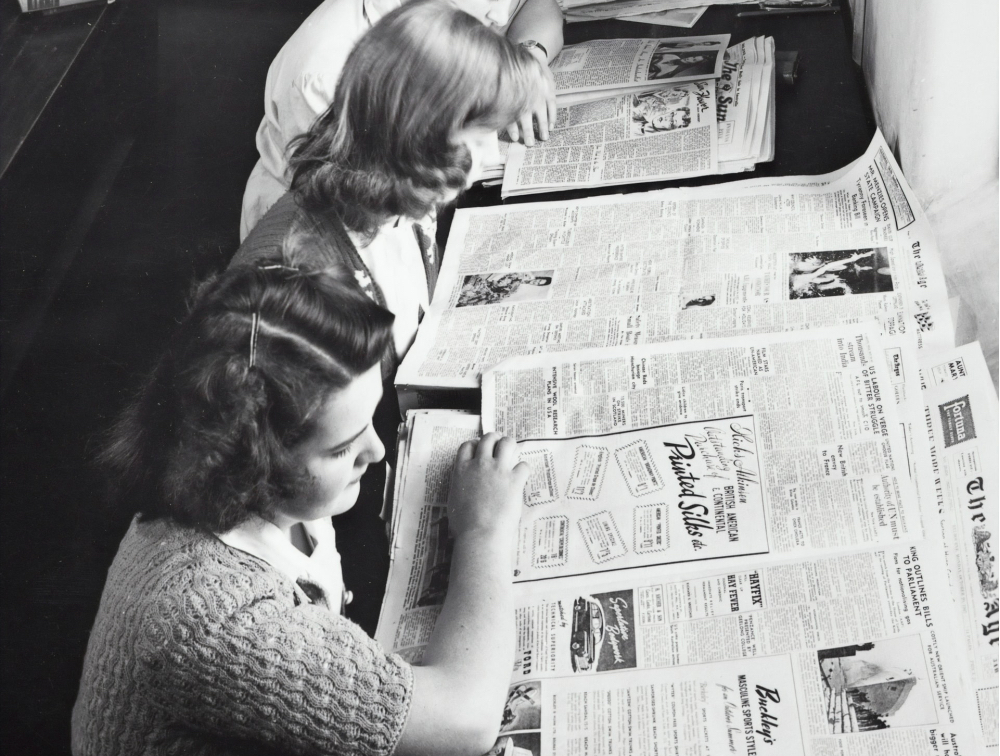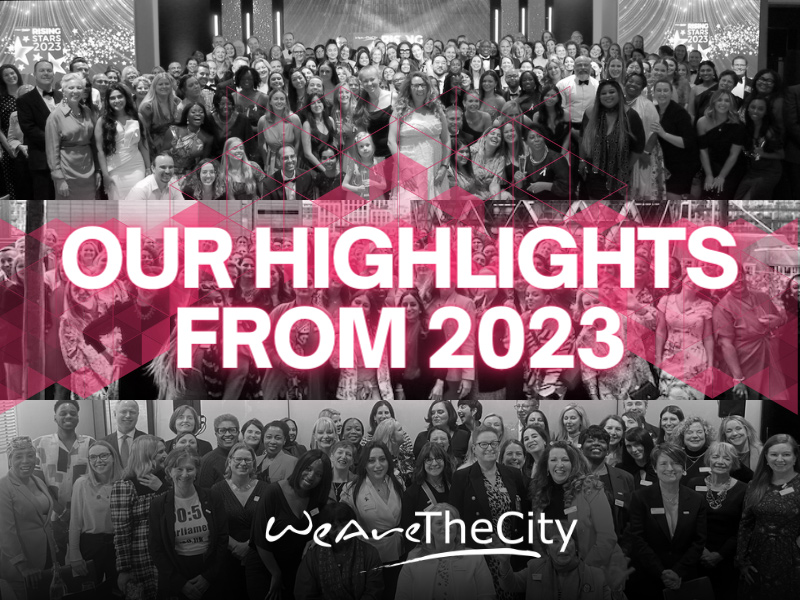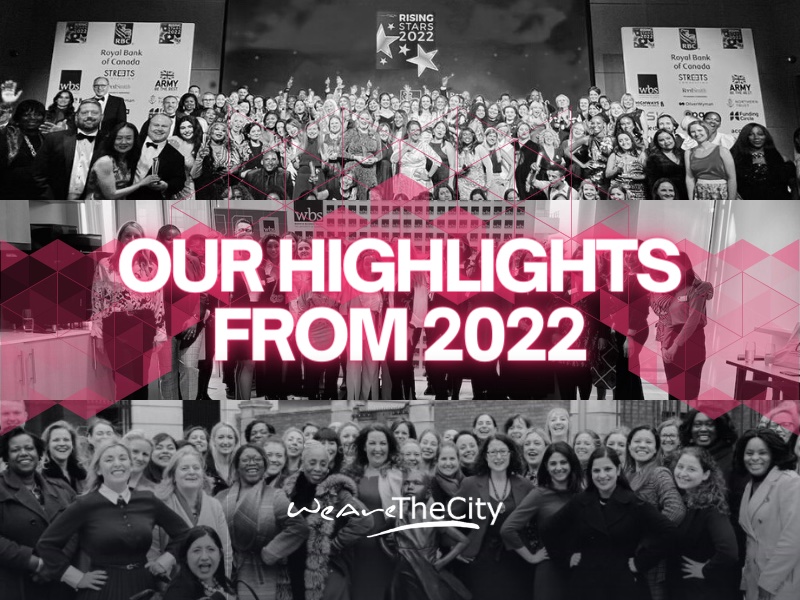Continuing on our series of looking back at the past year, we delve into some of our favourite and most important news stories of 2020.
While this year has been overshadowed by the COVID-19 pandemic, 2020 has still seen the 50th anniversary of the Equal Pay Act, the loss of Dame Vera Lynn, June Sarpong being awarded an OBE, Slough being voted the best town for jobs, and Scotland introducing free sanitary products for all.
We look forward to bringing you all the latest news, debates and thought-provoking articles in 2021!
 January
January
The year started with a bang, with the announcement of the New Year’s Honours List – and over half the recipients were women.
556 women were recognised in this year’s list, representing 51 per cent of the total.
The List includes leaders and pioneers from all fields. Amongst those honoured included, Ann Francke, Chief Executive Officer, Chartered Management Institute, who received an OBE for services to Workplace Equality; June Sarpong, Television Presenter, who was awarded an OBE for services to Broadcasting; and Sheila Flavell, COO, FDM Group, who was awarded a CBE for services to Gender Equality in IT and to Graduate Employment.
There are also damehoods for the Chief Executive of Citizens’ Advice, Gillian Guy, President of the Royal College of Obstetricians and Gynaecologists, Professor Lesley Regan, and Chief Executive of the John Lewis Partnership, Sharon White. Chemical engineer and Executive Chair of the Engineering and Physical Science Research Council, Professor Lynn Gladden. Writer Rose Tremain and potter Professor Magdalene Odundo are also recognised. There are CBEs for Chief Executive of the Samaritans, Ruth Sutherland, pioneering aerospace engineer Jenny Body, Chief Executive of Blackburne House, Clare Dove, and Chief Executive of Battersea Dogs and Cats Home, Claire Horton.
We also reported on the inspirational female firefighters looking for sponsors to help achieve their Antarctic challenge.
As an all-female team of firefighters from South Wales Fire and Rescue Service (SWFRS) and London Fire Brigade (LFB), they intend to be the first emergency service team to use muscle power alone to ski coast to coast across Antarctica on a route that has never been done by an all-female team before.
The challenge will take place in late 2023 with three years of specialist training and preparation required. In order to achieve their goals safely, the Fire Angels need to raise funds to secure vital equipment, satellite communications, flights, medical cover and much more.
Find out more about their campaign here.
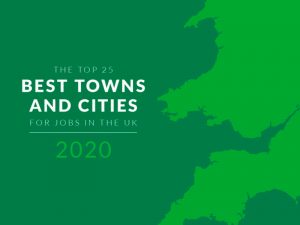 February
February
In February, it was revealed that Slough was the best town for jobs in the UK.
Glassdoor, one of the world’s largest job and recruiting sites, announced the results of its latest jobs report which identified the 25 Best UK Towns & Cities to Work In 2020.
Slough retains the top spot for the third time, thanks in part to the number of job openings and its above average wages. Cambridge, Gloucester, Guildford and Reading make up the UK’s ‘Top 5’.
This is the fourth time Glassdoor has run this report in the UK and it is compiled by ranking UK towns and cities with the highest Glassdoor score (out of 5), determined by weighting three factors equally: how easy it is to get a job (hiring opportunity), cost of living (salary vs home value), and how satisfied employees are (job satisfaction).
The top five cities remain the same as in 2018, when Glassdoor last published the report, moving around positions in 2020. Cambridge and Guildford both move up one place, with Gloucester and Reading each dropping a place.
 March
March
March saw the rapid advancement of Coronavirus, with the whole country put into lockdown on 23rd March.
As a result of the pandemic, it was announced that gender pay gap reporting would be suspended.
Due to the Coronavirus outbreak, the Government Equalities Office (GEO) and the Equality and Human Rights Commission (EHRC) took the decision to suspend enforcement of the gender pay gap deadlines for the 2019/2020 reporting year.
The decision meant that there will be no expectation on employers to report their data.
On a more positive note, people across the globe celebrated International Women’s Day on 8th March. Here at WeAreTheCity, we interviewed over 50 women from all backgrounds, ethnicity, and ages to tell us what International Women’s Day means to them.
 April
April
Some positive news for April came in the way of an increase to the National Living Wage.
As of 1st April 2020, the National Living Wage rate has increased to £8.72, giving a pay rise to thousands of workers across the country, in particular those on the frontline of the UK’s COVID-19 response.
The rise, which came at the recommendation of the Low Pay Commission (LPC), means the rate has reached the target of 60 per cent of median earnings, which was originally set by the Government back in 2015.
 May
May
May saw the 50th anniversary of the Equal Pay Act.
The anniversary marked 50 years since the Equal Pay Act was given royal accent and put forward the principle that men and women should receive equal pay for equal work.
The Equal Pay Act prohibited favourable treatment of men over women and prevented discrimination within employment of equal value.
The introduction of this act meant that employers had to give both men and women equal treatment and while the act suggest equal pay alone, it also covered holidays, pension rights, company perks and some bonuses.
The act allowed women to take their employers to tribunals if they found that a male employee doing similar work was being paid more than them. However, the onus was on the individual woman to prove that her employer was acting unlawfully.
The Equal Pay Act was triggered by a strike at the Ford Dagenham plant in 1968. The strike centred around the female sewing machinists, who made seat covers for the plant’s cars. As part of a Ford re-grading initiative, the women were downgraded and paid less than the men doing similar jobs. The strike inspired the film and stage play, Made in Dagenham, chronicling the women’s story.
Most of the act has now been replicated in the Equality Act 2010.
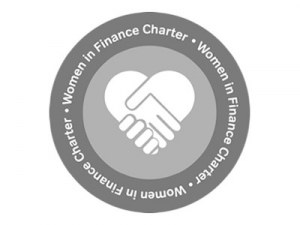 June
June
In June, it was announced that over 40 new firms had committed to promoting gender diversity in financial services.
The new companies have signed up to the Women In Finance charter, which aims to promote gender diversity in Financial Services.
42 new companies, including Capco, Homes England, Macquarie Group, and Rothschild & Co, have signed the charter, which commits firms to supporting the progression of women into senior roles in the financial services sector. This brings the total number of signatories to over 370.
Also in June, Sainsbury’s, KPMG, EY & ITV pledged to update annually on black inclusion commitments.
In a move, led by Audeliss and INvolve, the diversity and inclusion specialists, leading businesses have pledged to update annually on their progress to drive black inclusion, to put an end to the ‘repeating cycle of disengagement and inaction’.
In an open letter, published today in The Sunday Times, top business leaders from Zendesk, KPMG UK, ITV, BT, MOBO, PwC, Schroders, Sainsbury’s, Sodexo, Tesco, John Lewis, M&S and EY, have pledged to fix the current unfair system, outlining their ‘responsibility and duty’ to take ‘long term sustainable action’.
Sadly, we also saw the loss of the ‘forces’ sweetheart’, Dame Vera Lynn, who died at the age of 103.
Lynn had been in the industry for 93 years, making her stage debut at just seven years old. She became popular during the Second World War, in which she toured Egypt, India and Burma giving outdoor concerts to troops. During the height of the war, she was given her own radio show in which she sent messages to British soldiers serving abroad.
It was her work during the war that led her to become affectionately known as the Forces’ Sweetheart.
She was best known for hits including ‘White Cliffs of Dover’ and ‘We’ll Meet Again’.
 July
July
In July, we started to see the effect the pandemic was having on the UK workforce. A survey, conducted by Unipos, found that half of Brits have felt isolated from their colleagues while working remotely, with 31 per cent saying they lacked effective support from their companies.
Another survey also found that remote working was increasing workplace performance anxiety. The research, conducted by RADA Business, found that remote working is causing business professionals to feel increasingly anxious and stressed, with many calling out for appropriate training to help them cope.
Workplace performance anxiety is defined as nerves, uncertainty and fear that we may feel in workplace scenarios in which we are required to perform. It can manifest itself in both physical and emotional responses to these situations.
It was also reported that women were working through the night to manage work and family commitments during lockdown. A study from NEOMA Business School and emlyon Business School, found that working women were facing immense pressure at home, despite lockdown measures being lifted, as the burden to perform professionally collides with domestic duties.
As offices, restaurants and other communal places re-opened, children had not been given the same priority to go back to school or day-care centres and would not return until September in most cases.
For women, this means many were being forced to juggle multiple professional and personal commitments – having to balance working full time, taking care of children, and managing a surplus of domestic chores all within the home.
 August
August
In August, research showed that men’s wellbeing fared better than women’s during lockdown.
The research revealed that when it comes to wellbeing since lockdown, men are faring better than women.
The research, conducted by Aviva, found that that the UK lockdown, which was implemented in March to limit the spread of COVID-19, adversely affected more women than men in terms of physical, mental, and workplace wellbeing.
The survey of 2,003 UK working adults (including those who had been furloughed by their employer) conducted during the lockdown, found that it had a significant impact on all forms of wellbeing –increased stress while working, poor sleep quality, weight changes, unhealthy eating patterns and broken exercise habits.
Almost three in five women said that they have felt stressed at work since the lockdown began compared with four in ten men who highlighted an increase in stress.
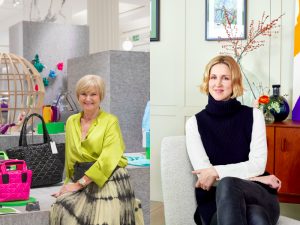 September
September
In September, the winners of the 2020 Bold Woman Award by Veuve Clicquot were announced.
Anne Pitcher, Group MD, Selfridges and Celia Pool, Co-Founder, DAME have been announced as the winners of the 2020 Bold Woman Awards by Veuve Clicquot.
Pitcher won the 2020 Bold Woman Award by Veuve Clicquot. The 48th woman to be honoured with the award, Pitcher is recognised for her work in promoting leadership roles for women in fashion, anchoring the business growth strategy in sustainability and driving retail innovation with great care and consideration for its people. She follows in the footsteps of an impressive roster of extraordinary businesswomen, including past winners Jo Whitfield, CEO of Co-op Food, Liv Garfield, CEO of Severn Trent and renowned architect Dame Zaha Hadid.
The Bold Woman Award is a modern evolution of the Business Woman Award which has been running since 1972 and is the first and longest-running international accolade of its kind. Since they began, the awards have acknowledged women pioneering across all fields of business, celebrating those who share the same qualities as Madame Clicquot, an original trailblazer known for her enterprising spirit, as well as her courage and the determination necessary to accomplish her business goals.
Celia Pool, Co-Founder of DAME, has been awarded the Bold Future Award by Veuve Clicquot for her outstanding contributions to the sustainable development of female products. The Bold Future Award celebrates women who have led with innovation to become pioneers in their industries. Previous winners include exceptional entrepreneurs Stephanie Alys, Founder of MysteryVibe, Cassandra Stavrou, founder of Propercorn and Kathryn Parsons MBE, Founder of Decoded.
 October
October
In October, we celebrated Black History Month – a month of remembrance of the important men, women, and events in the history of the African diaspora.
Black History Month was first celebrated in the UK in 1987. It was setup and organised by Akyaaba Addai-Sebo, who then served as a coordinator of projects for the Greater London Council and created a collaboration to get it underway. It was first celebrated in London and has become a national institution ever since.
During the month, June Sarpong OBE, Vanessa Kingori MBE and Yomi Adegoke were just some of the women taking over the Instagram accounts of prominent white women, for a campaign to raise black female voices and their work.
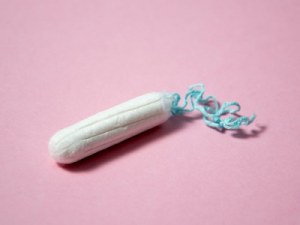 November
November
In November, Scotland became the first country in the world to offer free sanitary products for all.
Members of Scottish Parliament (MSPs) voted unanimously to approve the Sanitary Products (Free Provision) (Scotland) Bill, introduced by Labour MSP, Monica Lennon.
The Bill introduces a legal right of free access to tampons and sanitary pads in schools, colleges, universities and other public buildings.
Addressing Parliament, Lennon called the Bill a “practical and progressive” piece of legislation made all the more vital because of the coronavirus pandemic.
Period poverty means being unable to access sanitary products and having a poor knowledge of menstruation often due to financial constraints. In the UK, one in ten girls can’t afford to buy menstrual products, while one in seven have struggled to afford them, according to a representative survey of 1,000 girls and young women aged 14-21 by Plan International UK.
A recent study found that period poverty is getting worse during the Coronavirus pandemic and subsequent lockdown, with one in ten women in the UK having stopped using tampons or sanitary towels.

